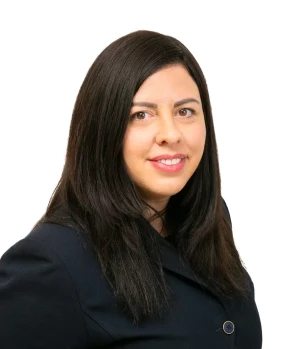An easement is a legal right granted to a landowner or a public or local authority, over another person’s land for a specific purpose, without actually owning it.
What is an easement?
An easement is a legal right granted to a landowner or a public or local authority, over another person’s land for a specific purpose, without actually owning it. For example, you might have the right to drain stormwater away from your land over someone else’s land, to get that excess water downstream to the local stormwater system, or you might be giving the right to your neighbour to have access to a line of “services” (e.g. water, power, gas) that cross over their land to get to yours.
Types of Easement
There are many different types of easements, however here are some of the most common.
Right of way
A common easement is a “right of way”, which gives the right to an owner or occupier of land to cross over some other land – whether by vehicle (right of carriageway) or by foot (right of footway). Often “battle-ax” properties find that their “handle” is a shared driveway from their lot to the rear to the road in front that is partly owned by each property, in which case each property gives a reciprocal easement over the other to pass over that driveway. Easements for services may protect the power cables and drainage lines that lie underneath that driveway as well. You might also find that two properties close together share a footpath between them which is actually owned by only one of them, or jointly owned and the easement allows both parties free access to pass through that area.
Cross-easements for support
In a property with a party wall, for example a semi-detached house or a terrace or townhouse, the title may disclose the property is affected by “cross easements for support” in respect of the party wall between the property and its neighbour. This means that each owner shares ownership of the wall, has the benefit of the continued existence of the wall and has reciprocal rights and responsibilities for its maintenance.
Easements for overhang or encroachments
Much smaller and more minor easements are for small encroachments of walls, or overhanging roofs and gutters – this gives the owner of the encroachment some rights over that area and ensures the owner of the land encroached upon cannot prevent maintenance works to the encroachment.
Easements for airspace
An easement for airspace is more common in high density urban areas – where a lower height building may “sell” some of its airspace to allow a permanent easement from a taller building for overhang, or a temporary easement to allow a crane to operate for a period of time. An easement for rock anchors is underground and also is common in urban areas with construction of tall buildings, that require underground support from neighbouring properties. Typically these are extinguished when construction is complete and the building has its own support.
Easements for electricity substations
If you live in a large strata complex you are likely to find an easement for an electricity substation (which is often a good thing as you are less likely to run out of power), and the easement gives the electricity authority the right to come onto the property to maintain that substation.
Easements for the benefit of the local council
There may be an easement in favour of the local Council – these days it is common for Councils and authorities to require easements over private property giving them the power of construction, maintenance and inspection of water and sewer infrastructure irrespective of protective easements being placed on titles. Council holds water and sewer easements in private property to ensure it maintains access to important water and sewer infrastructure. Often these are statutory easements and are not registered on the title to the property affected.
Do easements affect property values?
They can, however the extent to which value is affected will depend on the size and location of the easement, the specific circumstances of the easement and if it can prevent construction on more than a minor portion of the land. It is important to note that you are generally unable to build over an easement.
Do easements have value?
Yes they do, particularly for the party benefitting, as without that easement they may not have easy access to their property or services. Developers may often ask neighbouring properties for an easement so that they can lay drainage or power lines in the shortest possible route to those services, and they are prepared to pay for that privilege. Valuers value easements differently than they value unencumbered land, taking into account the loss of capital value (the “blot” on the title), disturbance (both in the present and in the future), costs to the owners (including the valuation and legal fees) and any advantages resulting from the creation of the easement.
Can someone force you to give them an easement?
Often they can. S88K of the Conveyancing Act allows a party to apply to the Supreme Court for the right to have you grant them an easement over your land, but only if:
In this case if the Court is satisfied, it will make the Order and will also order fair and reasonable compensation to be paid to you. So you have to give the easement but you do get paid market value for that easement.
(a) the easement is no inconsistent with the public interest,
(b) they have exhausted all other reasonable options and
(c) they have negotiated to buy the right from you and been unsuccessful.
Who is responsible for maintenance of an easement?
Often easements are silent as to who is responsible, especially the older ones. The general rule is that the owner of the burdened land must not do anything that would impede the owner of the benefitted land from using the easement and the dominant (benefitted) owner has the responsibility of maintaining the easement at their own cost. If you are granting an easement to someone now it is a good idea to put in writing who is responsible to maintain it so there is no ambiguity.
If you require an easement or you are having issues with a neighbour over an easement, you should contact an experienced property lawyer for advice.












